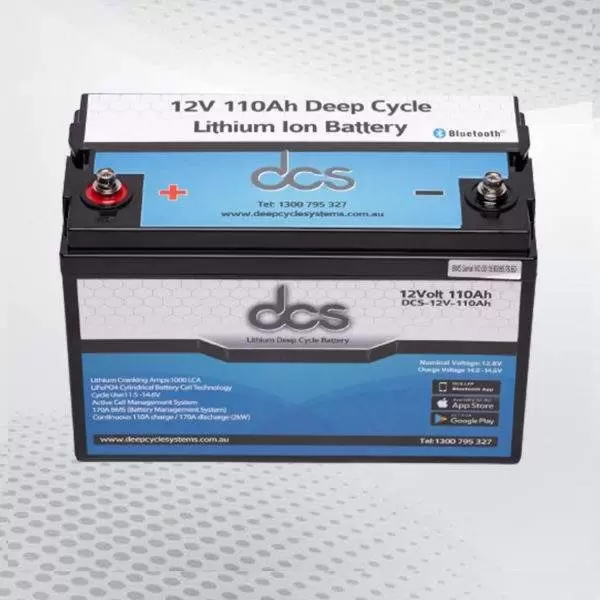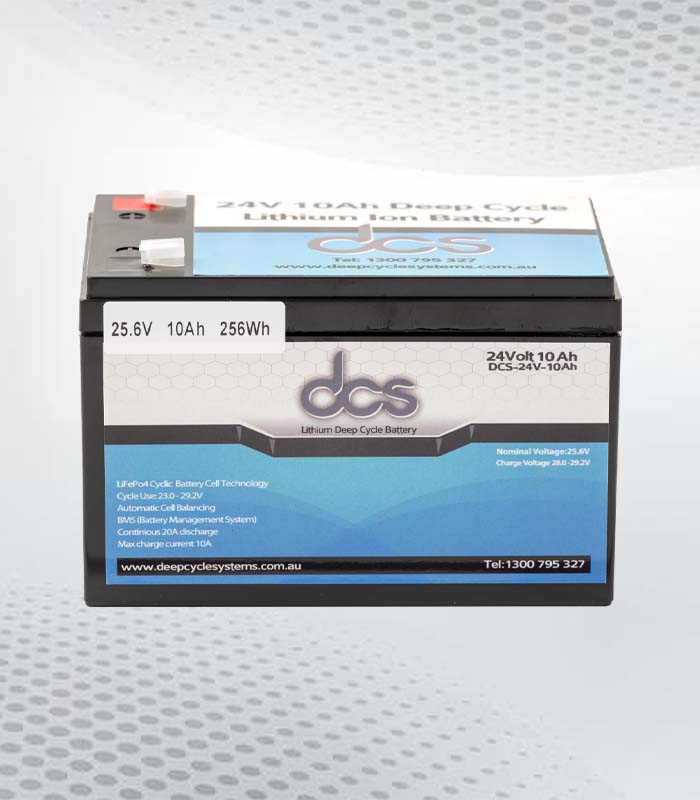The lifepo4 battery is a powerful and increasingly popular type of rechargeable battery. It is an excellent option for those looking for a more reliable and long-lasting power source for their electronics and other devices. We will provide a comprehensive guide to help you choose the best lithium iron phosphate battery for your specific needs. So stay tuned to find out more about this intriguing technology and how it could benefit you!
What Are Lithium Iron Phosphate Batteries?
Lithium Iron Phosphate (LiFePO4) batteries are a type of rechargeable battery known for their high energy density and long cycle life. They comprise lithium iron phosphate as the cathode material, providing a stable and reliable energy source. These batteries are commonly used in various applications, including electric vehicles, solar energy storage systems, and portable electronics. Unlike other lithium-ion batteries, LiFePO4 batteries have a lower risk of thermal runaway and are considered safer and more environmentally friendly.
Lithium Iron Phosphate (LiFePO4) batteries have gained popularity due to their numerous advantages. One of the key advantages is their high energy density, meaning they can store more energy in a smaller size. This makes them ideal for limited-space applications like electric vehicles or portable electronics.
Another advantage of LiFePO4 batteries is their long cycle life. They can be charged and discharged many times without significant degradation in performance, making them a cost-effective choice in the long run. Additionally, these batteries have a high tolerance for overcharging and can withstand high temperatures without overheating.
Advantages of Lithium Iron Phosphate Batteries
Lithium Iron Phosphate Batteries offer numerous advantages that make them highly desirable for various applications:
- They have a longer lifespan than other battery types, with up to 2000 charge cycles.
- They have a high energy density, meaning they can store significant energy in a small, lightweight package.
- They are more resistant to thermal runaway and have a higher tolerance for high temperatures, making them safer.
- They can be charged much faster than other battery types, making them ideal for applications where quick charging is essential.
- Another advantage of Lithium Iron Phosphate Batteries is their ability to maintain a stable voltage throughout the discharge cycle.
This means the power output remains consistent until the battery is almost completely discharged, ensuring a steady and reliable power source.
Applications of Lipo Battery 12v
Lithium Iron Phosphate batteries are commonly used in various applications, including electric vehicles, renewable energy storage systems, and backup power supplies. Their high energy density, long cycle life, and excellent thermal stability make them ideal for these applications. Due to their compact size and lightweight design, they are also frequently used in portable electronic devices, such as laptops and power tools.
Lithium Iron Phosphate batteries are utilized in the marine industry for trolling motors and other boating applications and in the telecommunications industry for uninterruptible power supply systems. Lithium Iron Phosphate (LiFePO4) batteries are known for their high energy density and long cycle life, making them suitable for various applications.
In the case of a lipo battery 12v, these batteries are commonly used in portable electronic devices such as laptops, tablets, and smartphones. Their compact size and lightweight design make them ideal for these applications.
How Do Lithium Iron Phosphate Batteries Work?
Lithium iron phosphate (LiFePO4) batteries work through lithiation, where lithium ions move from the positive to the negative electrode during charging. The positive electrode consists of iron phosphate, which is less reactive and more stable than other materials used in lithium-ion batteries. This stability improves the safety and lifespan of LiFePO4 batteries.
During the charging process, lithium ions from the positive electrode migrate through the electrolyte and insert themselves into the negative electrode, which is typically made of carbon. This movement of ions creates an electric current that can power various devices or systems.
One key advantage of LiFePO4 batteries is their high energy density, meaning they can store much energy in a compact size. This makes them ideal for applications where space is limited, such as in electric vehicles or portable electronic devices.
Comparison with Other Battery Types
Lithium iron phosphate batteries have several advantages over other battery types. They have a longer lifespan, typically up to 10 years, compared to other lithium-ion batteries, which usually last around 3-5 years.
They have higher thermal stability and are less prone to thermal runaway, making them safer. They also have a higher energy density and can provide more power in a smaller size. They have lower specific energy than lithium-ion batteries, so they may need to be more suitable for applications requiring high energy density. Despite the lower specific point, lithium iron phosphate batteries are still widely used in various applications.
They are commonly used in electric vehicles, solar energy storage systems, and backup power supplies due to their high energy efficiency and long cycle life. In electric cars, for example, lithium iron phosphate batteries are preferred over other lithium-ion batteries because of their inherent safety features and ability to withstand high discharge rates.
Challenges and Limitations of Lithium Iron Phosphate Batteries
Despite their numerous advantages, lithium iron phosphate batteries have some challenges and limitations. One of the main limitations is their lower energy density compared to other types of lithium-ion batteries. This means they may be unable to store as much energy in a given size or weight. Lithium iron phosphate batteries can be more expensive to manufacture compared to other lithium-ion batteries.
They may have a slightly lower voltage than other lithium-ion batteries, impacting their performance in specific applications. It’s important to note that these limitations are often outweighed by the advantages of lithium iron phosphate batteries in particular applications. For example, their lower energy density may be acceptable for applications prioritizing safety and long lifespans, such as electric vehicles or renewable energy storage systems.
Factors Influencing the Performance of 100ah Deep Cycle Battery
Several factors can influence the performance of a 100ah deep cycle battery. First, the quality and chemistry of the battery cells used can significantly impact their overall performance and lifespan. Factors such as temperature, charging and discharging rates, and depth of discharge can also affect the battery’s performance. Considering these factors when selecting and using a 100-ah deep cycle battery is crucial to ensure optimal performance and longevity.
In terms of battery cells, lithium iron phosphate (LiFePO4) batteries are known for their high energy density and long cycle life. These batteries use lithium iron phosphate as the cathode material, which offers excellent thermal and chemical stability. This allows the battery to withstand high temperatures and reduces the risk of thermal runaway or fire.
Temperature is another crucial factor that can influence the performance of a 100-ah deep cycle battery. Extreme temperatures, whether too hot or cold, can impact the battery’s capacity and lifespan. Operating the battery within its specified temperature range is essential to maintain optimal performance.
Safety Testing and Certification of Lithium Iron Phosphate Battery Packs
Safety testing and certification of Lithium Iron Phosphate battery packs are crucial to ensure their reliable and safe performance. These batteries undergo rigorous testing to meet international standards and regulations. Various tests, such as thermal abuse, overcharge, short circuit, and vibration tests, are conducted to evaluate their safety and performance. Certification from organizations like UL (Underwriters Laboratories) or IEC (International Electro technical Commission) confirms that the battery packs meet all safety requirements.
Consumers must look for certified Lithium Iron Phosphate battery packs to ensure safety and peace of mind. The thermal abuse test evaluates the battery’s ability to withstand extreme temperature conditions without any safety hazards, such as thermal runaway or explosion. Overcharge tests assess the battery’s response to excessive charging, ensuring it does not overheat or overcharge, which can lead to damage or failure.
FAQs
Are lithium iron phosphate batteries safe?
Yes, lithium iron phosphate batteries are considered one of the safest lithium-ion batteries available. They are more stable and less prone to overheating or catching fire than lithium-ion batteries. Additionally, they have higher thermal stability and are less reactive, reducing the risk of thermal runaway.
How long do lithium iron phosphate batteries last?
Lithium iron phosphate batteries have a longer lifespan compared to other lithium-ion batteries. Depending on the manufacturer and usage conditions, they can typically last for 2000 to 5000 cycles. This means that they can last for several years before needing to be replaced.
Can lithium iron phosphate batteries be used in extreme temperatures?
One of the advantages of lithium iron phosphate batteries is their ability to perform well in a wide range of temperatures. They can operate effectively in high- and low-temperature environments, making them suitable for various applications.
Can lithium iron phosphate batteries be charged with a regular charger?
Lithium iron phosphate batteries require a specific charger designed for their chemistry. Using a regular charger for other lithium-ion batteries can lead to inefficient charging and potentially damage the battery. It is essential to use a charger compatible with lithium iron phosphate batteries to ensure proper charging and maximize lifespan.
Can lithium iron phosphate batteries be used in electric vehicles?
Lithium iron phosphate batteries are commonly used in electric vehicles due to their high energy density, long lifespan, and enhanced safety features. They are known for delivering increased power and maintaining consistent performance over multiple charge-discharge cycles, making them a reliable choice for electric vehicles.
Conclusions
The Lithium Iron Phosphate (LiFePO4) battery has emerged as a promising and widely adopted energy storage solution in various applications. Its unique chemistry offers several advantages, including enhanced safety, longer lifespan, and better thermal stability than other lithium-ion battery types. The Lithium Iron Phosphate battery’s excellent performance and reliability have made it a preferred choice for renewable energy systems, electric vehicles, and portable electronics applications. The environmentally friendly nature of LiFePO4 batteries, with their non-toxic and abundant raw materials, contributes to their sustainability and reduced environmental impact.



